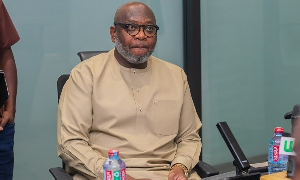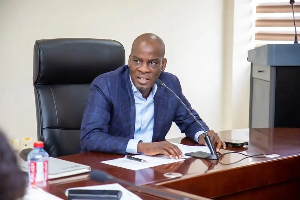General News of Wednesday, 15 July 2015
Source: Daily Guide
IFS warns Gov’t about excessive borrowing
The Institute of Fiscal Studies (IFS) has expressed dissatisfaction with the rate at which government is borrowing from both international and local sources.
According to the institute, interest payments on the numerous loans had accumulated to a point where the country could return to the Heavily-Indebted Poor Country (HIPC) status soon if nothing was done about it.
“Total public debt increased by GH¢25.3 billion during the four-year period of 2008 and 2012 and by a whopping GH¢53.1 billion between 2012 and March 2015.
This brought the public total debt stock to GH¢88.2 billion at end-March 2015 from GH¢9.8 billion in 2008.
Interest payments on the public debt similarly increased from the equivalent of 2.7 percent of GDP in 2012 to 7.1 percent of GDP at end-2014.
“This caused high-interest payments in 2013 and 2014 to exceed their corresponding capital expenditures. The sharp increase in debt accumulation in recent years indicates that Ghana could return to HIPC status sooner than later,” the IFS mentioned in its June paper.
It attributed the huge surge in borrowing by government in recent years to a number of factors including the rapid economic growth and better economic policies pursued between mid 2009 and the third quarter of 2012, low global interest rates leading to lowering costs, high global liquidity combined with investors seeking risk-adjusted returns and diversification opportunities.
“Greater access to the international financial markets did not only provide additional borrowing opportunity for the country. It has also exposed the country to the vicissitudes of these markets and complicated the debt sustainability problems.”
The IFS further noted that future financing conditions are likely to be tighter and costly for the country due to the unusually high exchange rate movements, especially the US dollar, sustainability of the country’s public debt and debt servicing costs.
“This calls for strong measures to contain fiscal deficit, stem the depreciation of the local currency and control the rising domestic interest rates. Government must formulate and implement a prudent, effective and sound debt management strategy that aims at reducing the country’s exposure to external shocks, choosing between the financing sources and instruments in a manner that strikes an optimal balance between costs and risks, and deepening the domestic bond market.”
Additionally, it called for reform and strengthening of institutional arrangements that govern debt policy and also for government to engage in more efficient borrowing.
Entertainment











